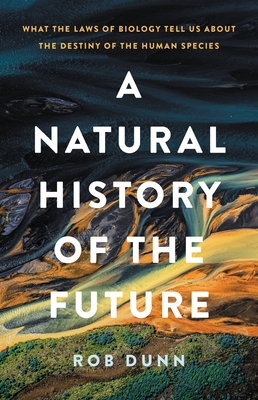

 Basic Books
Basic Books
A Natural History of the Future: What the Laws of Biology Tell Us about the Destiny of the Human Species


Key Metrics
- Rob Dunn
- Basic Books
- Hardcover
- 9781541619302
- -
- -
- Nature > Ecology
- English
 Secure Transaction
Secure TransactionBook Description
Our species has amassed unprecedented knowledge of nature, which we have tried to use to seize control of life and bend the planet to our will. In A Natural History of the Future, biologist Rob Dunn argues that such efforts are futile. We may see ourselves as life's overlords, but we are instead at its mercy. In the evolution of antibiotic resistance, the power of natural selection to create biodiversity, and even the surprising life of the London Underground, Dunn finds laws of life that no human activity can annul. When we create artificial islands of crops, dump toxic waste, or build communities, we provide new materials for old laws to shape. Life's future flourishing is not in question. Ours is.
As ambitious as Edward Wilson's Sociobiology and as timely as Elizabeth Kolbert's The Sixth Extinction, A Natural History of the Future sets a new standard for understanding the diversity and destiny of life itself.
Author Bio
Most of the living world remains poorly or totally unknown. In my lab we study the species around us in our everyday lives, species we tend to think of us as well known. Most of those species are not well known and so there are many things to discover in your backyard, in your bedroom, or even on your roommate.
Some days I work to study these species myself, bending down to figure out whether the fungus on my neighbor’s foot is a new species. More often I spent my time working with students and other researchers to help along their own discoveries. I also write about the world around us, which is a chance to share the stories of the scientists who have devoted their lives to understanding species, organs, cells, genes or ecosystems that influence us every day. In my building alone I am surrounded by biologists who study prairie voles, rare butterflies, fish ovaries, dinosaurs with long, long, claws, the decisions we make when threatened with death, alcoholic fruitflies, fungus farming beetles, and much, much more.
It is a good job, this thing called science, silly at times, serious at others, but nearly always good.
Source: North Carolina State University
Community reviews
Write a ReviewNo Community reviews



